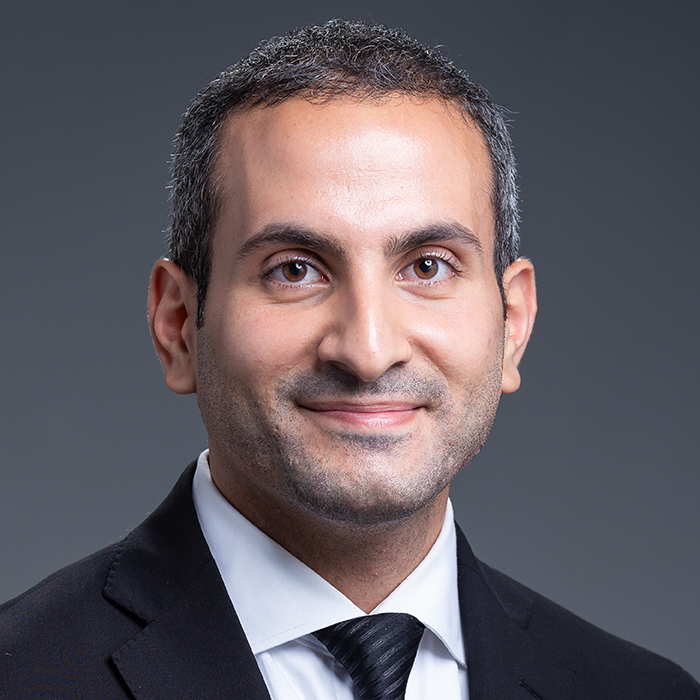
Credit: Headshots supplied by Antonio Yaghy and Carol Shields
Large language models (LLMs), in tandem with artificial intelligence (AI), could one day reshape how we practice ophthalmology – but we still have a way to go. As an industry, it is imperative that we first explore their potential use in elevating patient care, research, and education, while also addressing the ethical, technical and legal challenges they pose.
The appeal of LLMs lies in their ability to process and generate human-like natural language. Trained on massive text corpora, they can skilfully consolidate information, answer questions, and even engage in nuanced dialogue. To provide a use-case scenario, these systems can rapidly distill literature into key insights – if you’re a time-strapped ophthalmologist, I’m sure you can understand how useful this would be.
LLMs also have the potential to spot crucial patterns and risk factors that could elude even the most eagle-eyed clinician in patient datasets. And though they aren’t yet an HIPAA-compliant platform, the advancement of AI technology and increasing focus on data privacy suggests this breakthrough is on the horizon.
With regards to research, LLMs are able to not only shoulder mundane tasks like data cleaning and literature reviewing, but also generate novel hypotheses and uncover previously overlooked connections. These very same capabilities can be harnessed to bridge the knowledge gaps faced by ophthalmology residency trainees and fellows. In other words, LLMs can act as personalized tutors, generating custom assessments tailored to a trainee’s performance on practice tests, which can, in turn, provide an array of realistic clinical scenarios to reinforce understanding and facilitate the practical application of ophthalmological concepts.
But what really sets our hearts racing is the potential for LLMs to revolutionize patient experiences. Visual input capabilities have the capacity to empower applications like Be My Eyes to enhance quality of life for the visually impaired. Moreover, using LLMs, these apps could – in theory – provide more accurate and context-aware assistance, and enable users to navigate their surroundings with greater ease and independence.
Customization is another key advantage of these models. For instance, LLMs can be trained to answer “frequently asked questions” related to various medical conditions, thereby providing patients with instant access to reliable information, helping patients to better understand and manage their health, while reducing the burden on physicians.
You might be thinking, “This all sounds too good to be true.” And you’re right – we’ve got some significant hurdles to clear. Privacy is a major concern when it comes to implementing LLMs in healthcare; the vast amounts of sensitive patient data required to train these models could be vulnerable to breaches or misuse. Therefore, ensuring fairness is another critical challenge.
On top of this, LLMs have the potential to perpetuate or even amplify biases present in the data they are trained on, which can lead to disparities in the quality of care for different patient populations – and that brings their robustness into question. Though they can generate impressive outputs, they can also produce inconsistent, nonsensical, or even harmful responses.
In short, we must address challenges surrounding privacy, fairness, accountability, and robustness to ensure the responsible deployment of LLMs for a brighter eye care future.
Large language models (LLMs), in tandem with artificial intelligence (AI), could one day reshape how we practice ophthalmology – but we still have a way to go. As an industry, it is imperative that we first explore their potential use in elevating patient care, research, and education, while also addressing the ethical, technical and legal challenges they pose.
The appeal of LLMs lies in their ability to process and generate human-like natural language. Trained on massive text corpora, they can skilfully consolidate information, answer questions, and even engage in nuanced dialogue. To provide a use-case scenario, these systems can rapidly distill literature into key insights – if you’re a time-strapped ophthalmologist, I’m sure you can understand how useful this would be.
LLMs also have the potential to spot crucial patterns and risk factors that could elude even the most eagle-eyed clinician in patient datasets. And though they aren’t yet an HIPAA-compliant platform, the advancement of AI technology and increasing focus on data privacy suggests this breakthrough is on the horizon.
With regards to research, LLMs are able to not only shoulder mundane tasks like data cleaning and literature reviewing, but also generate novel hypotheses and uncover previously overlooked connections. These very same capabilities can be harnessed to bridge the knowledge gaps faced by ophthalmology residency trainees and fellows. In other words, LLMs can act as personalized tutors, generating custom assessments tailored to a trainee’s performance on practice tests, which can, in turn, provide an array of realistic clinical scenarios to reinforce understanding and facilitate the practical application of ophthalmological concepts.
But what really sets our hearts racing is the potential for LLMs to revolutionize patient experiences. Visual input capabilities have the capacity to empower applications like Be My Eyes to enhance quality of life for the visually impaired. Moreover, using LLMs, these apps could – in theory – provide more accurate and context-aware assistance, and enable users to navigate their surroundings with greater ease and independence.
Customization is another key advantage of these models. For instance, LLMs can be trained to answer “frequently asked questions” related to various medical conditions, thereby providing patients with instant access to reliable information, helping patients to better understand and manage their health, while reducing the burden on physicians.
You might be thinking, “This all sounds too good to be true.” And you’re right – we’ve got some significant hurdles to clear. Privacy is a major concern when it comes to implementing LLMs in healthcare; the vast amounts of sensitive patient data required to train these models could be vulnerable to breaches or misuse. Therefore, ensuring fairness is another critical challenge.
On top of this, LLMs have the potential to perpetuate or even amplify biases present in the data they are trained on, which can lead to disparities in the quality of care for different patient populations – and that brings their robustness into question. Though they can generate impressive outputs, they can also produce inconsistent, nonsensical, or even harmful responses.
In short, we must address challenges surrounding privacy, fairness, accountability, and robustness to ensure the responsible deployment of LLMs for a brighter eye care future.

Credit: Headshot supplied by Antonio Yaghy

Credit: Headshot supplied by Carol Shields
